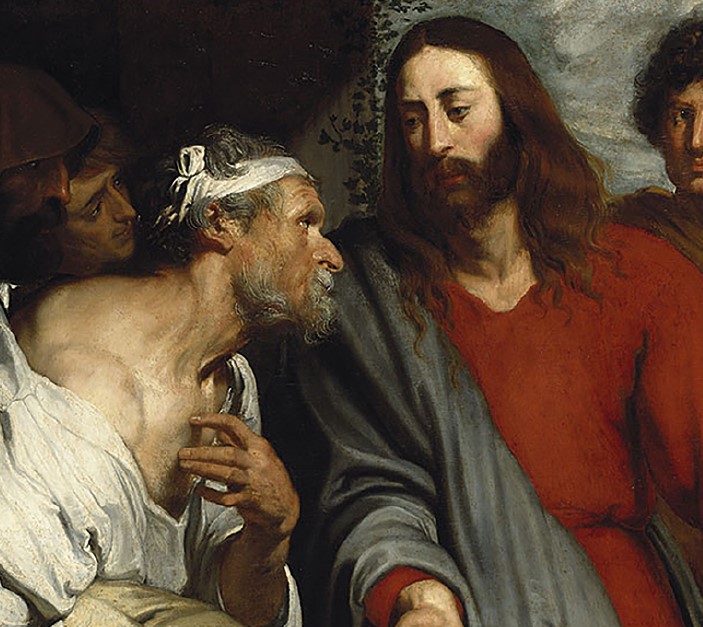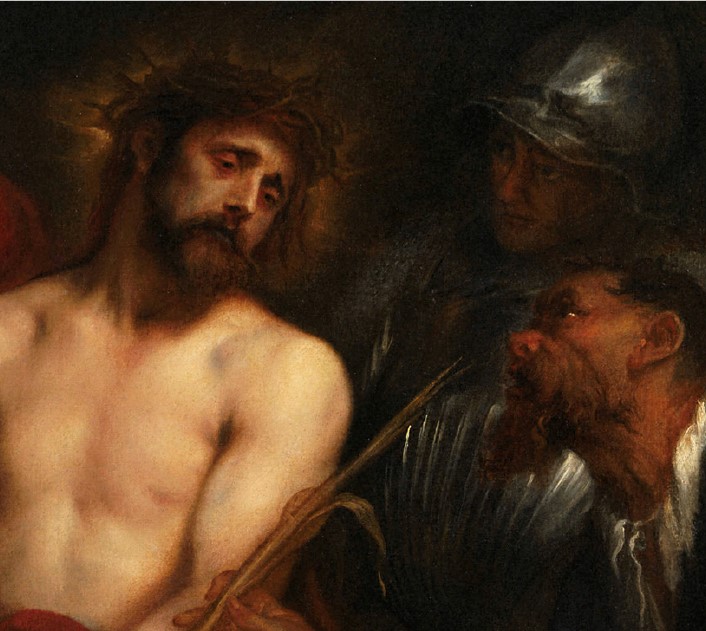JESUS CHRIST was unique. In fact, he was the greatest human being who ever lived. His Gospel message of the Kingdom of God and resurrection from the dead changed the Roman Empire and the world.
The New Testament in the Bible contains the record of Jesus’ life, work and resurrection. It is found in the four gospels Matthew, Mark, Luke and John, all of which give us the good news (that is, the Gospel) of the Kingdom of God and the things concerning the Lord Jesus Christ (Acts 28:31).
His Origin
In Israel’s ancient history there was a great king of Israel whom God had called ‘a man after his own heart’ (1 Samuel 13:14). He loved God, and wrote many of the psalms in the book of Psalms, several being prophecies of his descendant, the Lord Jesus Christ.
King David looked to the future when this descendant would set up an everlasting kingdom upon earth, for example when he wrote ‘The Lord says to my Lord: “Sit at my right hand, until I make your enemies your footstool”’ (Psalm 110:1). Jesus recognised this psalm as prophetic of himself, the Son of God; he asked the Pharisees:
“What do you think about the Christ? Whose son is he?” They said to him, “The son of David.” He said to them, “How is it then that David, in the Spirit, calls him Lord, saying, ‘The Lord said to my Lord, Sit at my right hand, until I put your enemies under your feet’? If then David calls him Lord, how is he his son?” (Matthew 22:42–45).
His Birth
Mary was told by the angel Gabriel she was to have a son and she was to call his name JESUS (Luke 1:27, 31).
The angel told her, ‘He will be great and will be called the Son of the Most High. And the Lord God will give to him the throne of his father David, and he will reign over the house of Jacob for ever, and of his kingdom there will be no end’ (vs. 32–33).
When Jesus was born in Bethlehem, some shepherds were visited by an angel who said to them, ‘Fear not, for behold, I bring you good news of great joy that will be for all the people. For unto you is born this day in the city of David a Saviour, who is Christ the Lord’ (Luke 2:10–11). Jesus was very special: he was destined to be the saviour of both Jews and Gentiles.
His Life
The four gospels are the only source we have which tells us about the life of Jesus. The gospel of Luke gives us a brief picture of Jesus’ early life. Chapter 2 tells us of his circumcision, when he was presented in the temple as a baby, and of how at the age of 12 he stayed behind in the temple listening to the teachers and asking questions, whilst his family spent three days searching for him (Luke 2:43–48). When they found him Mary said to him, ‘”Son, why have you treated us so? Behold, your father and I have been searching for you in great distress.” And he said to them, “Why were you looking for me? Did you not know that I must be in my Father’s house?”’ (vs. 48–49). At the time Mary and Joseph failed to understand what he had said (v. 50)—but we know he meant his Father in heaven, the Lord God.
Jesus was baptised (Luke 3:21–22), then he went into the wilderness for 40 days and 40 nights ‘being tempted by the devil’ (Luke 4:1–12). He overcame the temptations he was subjected to (v. 13).
Preaching and Healing
After his temptations, Jesus began preaching in the region of Galilee, starting in Nazareth where he’d grown up (Luke 4:16). He entered the synagogue on the Sabbath day and read a portion of the prophecy of Isaiah (vs. 18–19, see Isaiah 61:1–2). He told the people this prophecy was about him and had been fulfilled (v. 21). However, they didn’t believe his words, saying: ‘Is not this the carpenter’s son? Is not his mother called Mary? And are not his brothers James and Joseph and Simon and Judas? And are not all his sisters with us? Where then did this man get all these things?’ (Matthew 13:55–56). Their unbelief was such that Jesus could not perform many miracles there.
Jesus spent three years preaching the Gospel of the Kingdom of God and repentance (Mark 1:14–15). He did this largely by using parables. He chose 12 disciples and made a point of explaining his parables to them so they would understand his message. The majority of the people were not spiritual enough to understand his parables. The disciples had to understand, they were to teach the world the Gospel after he had left them.
He also performed many acts of healing, which served to verify his claim to be the Son of God, the Christ (that is, the Messiah)—which Peter affirmed when Jesus asked his disciples, ‘“But who do you say that I am?” And Peter answered, “The Christ of God.”’ (Luke 9:20).
There are many examples of Jesus’ miracles of healing found in the gospels. This is a notable example of the remarkable power he had.
There was a woman who had had a discharge of blood for twelve years, and who had suffered much under many physicians, and had spent all that she had, and was no better but rather grew worse. She had heard the reports about Jesus and came up behind him in the crowd and touched his garment. For she said, “If I touch even his garments, I will be made well.” And immediately the flow of blood dried up, and she felt in her body that she was healed of her disease. And Jesus, perceiving in himself that power had gone out from him, immediately turned about in the crowd and said, “Who touched my garments?” And his disciples said to him, “You see the crowd pressing around you, and yet you say, ‘Who touched me?’” And he looked round to see who had done it. But the woman, knowing what had happened to her, came in fear and trembling and fell down before him and told him the whole truth. And he said to her, “Daughter, your faith has made you well; go in peace, and be healed of your disease.” (Mark 5:25–34).
The greatest acts of healing by the Lord Jesus were when he raised the dead to life. Most notably was when he raised his friend Lazarus to life after being dead four days (John 11).
His Death
Jesus knew that he must die; he told this to his disciples many times. At first they failed to register what he was telling them, it was later on when they finally understood.
Peter tried to dissuade him from going to his death: ‘“Far be it from you, Lord! This shall never happen to you.” But he turned and said to Peter, “Get behind me, Satan! You are a hindrance to me. For you are not setting your mind on the things of God, but on the things of man”’ (Matthew 16:22–23).
Jesus’ sinless life and sacrificial death were the main objectives of his ministry. Without it there would have been no resurrection, no forgiveness of sins, no redemption, and no reconciliation to God for anyone.
Jesus ‘the only son of God’ (John 3:18) was a sinless sacrifice, he was ‘the bread of life’ (John 6:35), which God gave for the life of the world (v. 51). His shed blood ‘cleanses us from all sin’ if we accept his offer of salvation (1 John 1:7).
He died by crucifixion just as he prophesied: ‘And as Moses lifted up the serpent in the wilderness, so must the Son of Man be lifted up’ (John 3:14).
‘For God so loved the world, that he gave his only Son, that whoever believes in him should not perish but have eternal life’ (v. 16). If we believe in him and keep his commandments, he calls us his friends: ‘Greater love has no one than this, that someone lay down his life for his friends. You are my friends if you do what I command you’ (John 15:13–14).
His Resurrection
Jesus died on the cross and was laid in a rock tomb, but in three days he was raised to life again (Matthew 20:18–19). It was this momentous event which sparked the rise of Christianity throughout the Roman Empire. The disciples initially did not believe Jesus had risen from the dead, but were convinced after he had appeared to them on several occasions.
The first chapter of Acts contains the record of Christ’s last days on earth, which he spent with his disciples, before he was taken up into heaven. ‘He presented himself alive to them after his suffering by many proofs, appearing to them during forty days and speaking about the kingdom of God’
(Acts 1:3). As he was taken into heaven the angels gave his disciples this message: ‘Men of Galilee, why do you stand looking into heaven? This Jesus, who was taken up from you into heaven, will come in the same way as you saw him go into heaven’ (v. 11).
When he returns he will establish the Kingdom of God to rule the world in righteousness. He will resurrect the dead and give eternal life to those who have been faithful (Daniel 12:1–3).
Although the Bible is an ancient book, it has a message for all people on earth today. It is a real message of hope in a hopeless world.
Grahame A Cooper





